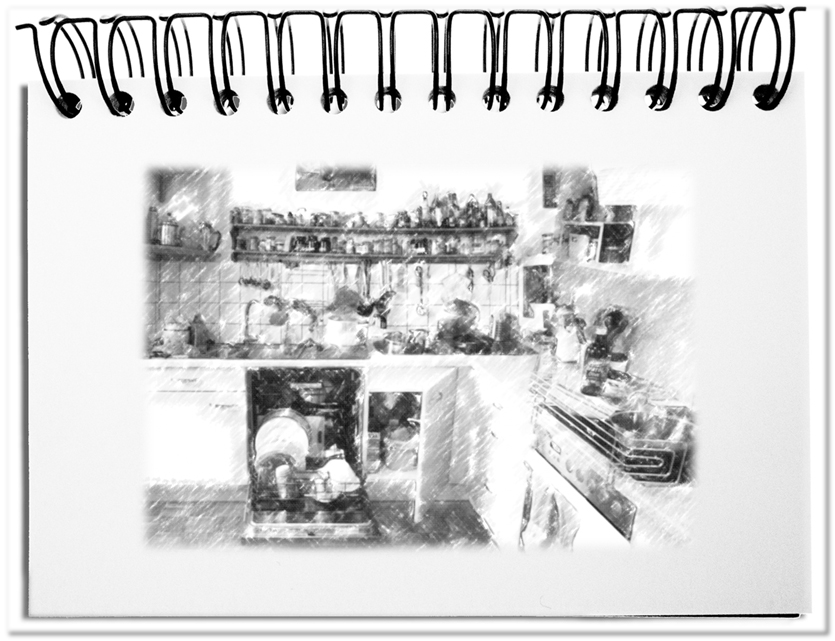In the egotope of one’s own small apartment, everything is determined by the interests of the one resident. He doesn’t have to coordinate with anyone, doesn’t have to permanently consider other people and only cares when he is in the mooed for it. Different lifestyles, attitudes and tastes encounter in the sociotope of a flat-sharing community. The perceived obligation to take care of the common living space can be very different from one to the other. In the bathroom and the kitchen the different sensitivities collide. One remedy is nowadays the labelling of food and drinks with the name of the owner, in the hope of rediscovering the personal purchases when needed. Fate hits when it comes to dishes. As soon as the first dirty plate remains, other used plates, glasses, knives, forks and spoons accumulate at the speed of light. Why would anyone care about it?
Familial and cultural differences result in dissimilar thresholds of irritation, which, as soon as they are exceeded, lead to someone caring, because the personal emotional burden becomes too big.
- Assignment
The official trigger is a temporary assignment of the task. As soon as someone is obliged to fulfil an affair, for example in business in the form of a job description or a direct order, when the authorities are sufficient to deliver the required results in a determined quality, the person in charge has little room to leeway to avoid it.
The formalized assignment with the clear description of the task is the common way. - Career reasons
The assumption of unpopular tasks can result from career advantages for the responsible persons, which are sufficient to devote them courageously to the activity.
The calculated assignment uses ambition and creates a win-win situation. - Interest
The intrinsic stimulus of dedicating oneself to a task arises naturally, when the content satisfies a particular interest. And every task can be interesting – even generally unpopular routine tasks. The
intrinsic assumption of a task based on passion boosts the well-being of the contractor. - Public spirit
A special interest comes from the altruistic drive to take on tasks in order to make the world a better place.
The altruistic drive to do a job for humanity’s benefit strengthens the fulfiller’s self-esteem. - Boredom
As soon as the inner clock runs slower and slower, time doesn’t want to pass, you get cabin fever and you can’t find anything better to do, than boredom is worse than any unpopular task.
The distracting performance of otherwise unattractive tasks shall expel the time of the executer. - Psychological strain
If the current situation is so awkward that the level of suffering rises above the personally acceptable degree, this leads quickly to the removal of the disturbing problem.
The curative takeover of a task takes place autonomously in order to eliminate the acute “pain” by completing the task.
Bottom line: There are tasks that require the active treatment. The reasons to take care of it are manifold. They range from a temporary assignment, are based on interest, calculated career reasons and altruistic public spirit, to avoiding boredom and solving personal suffering. The diversity of the characters leads in most cases to the handling of the task. The first is in extreme cases the last possibility – the assignment. By answering the question “Why should I?” the implementation starts – sooner or later.

